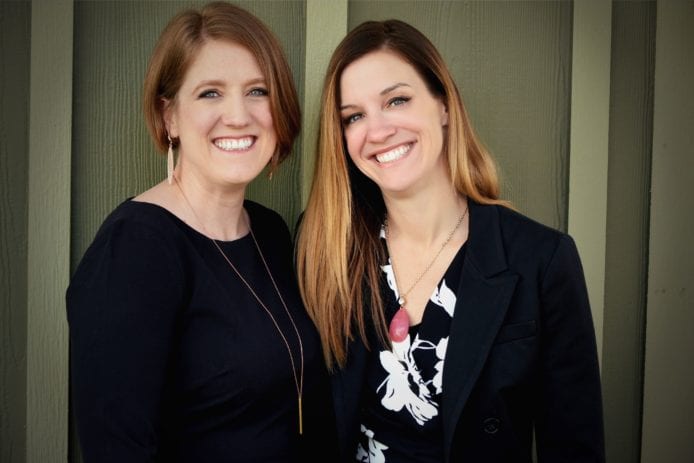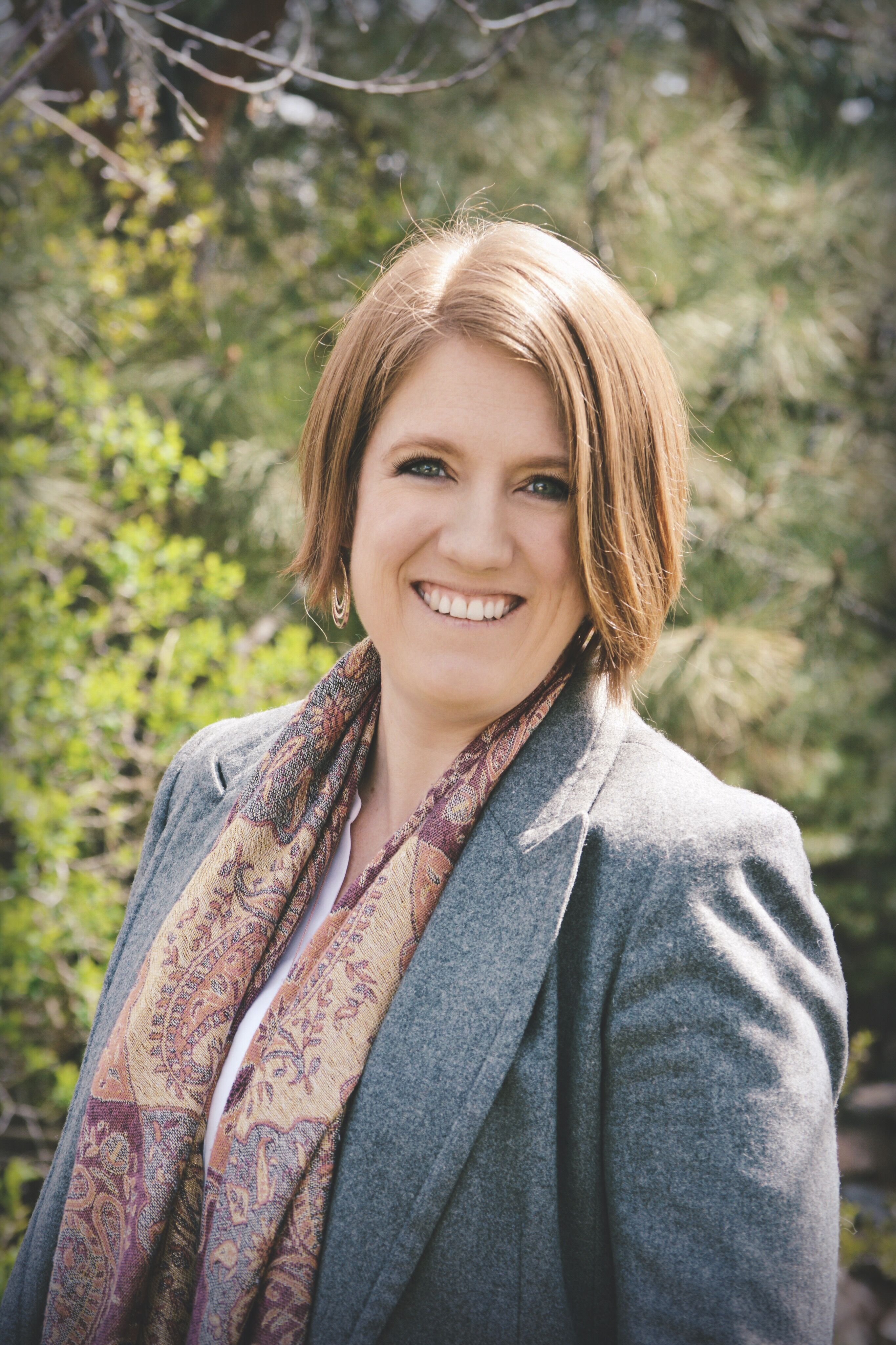Lawyerist Lab is a community where solo and small-firm lawyers go to innovate, test, experiment, and improve their law businesses. We’re interviewing Lab members on their experiences as they align with The Small Firm Roadmap.

“Our personal goals, vision, and values are keyed in across all six team members.“
Tell us about your practice. How did it start? What were you doing before you started it?
My partner Jennifer Gersch and I practice criminal defense around Denver. We’re a virtual law firm and travel through most of Colorado to reach our clients. It’s just the two of us — but we have a team of subcontractors.
I spent four years as a solo attorney before I teamed up with Jenn. And I own and manage a second business (property management — a different skill set!), I had a toddler, I had multiple pets (including an office horse), and everything was getting a little chaotic.
What made you go solo?
Ha! I can’t be a good employee. But really, I reached a point in my career where I wanted the discretion to do what I think is right. I’ve been a prosecutor. I’ve done bankruptcy and tax law. I was an unemployment appeals judge on a contract basis in Idaho. I’ve dabbled in aviation law. You name it. I liked the criminal courtroom because it lets me be creative and I was great in court.
But working in a firm or as a prosecutor, I couldn’t be there for my family and all of my other responsibilities. It was time for me to choose my own fate. I had an undergrad in Accounting and knew I’d like running a business. My dad, an entrepreneur, raised me to be an independent thinker. It all seemed to fit.
What qualities does someone need to be a successful solo or small firm lawyer?

A couple of things. Ideally, a business background — or at least, a willingness to learn. Business work often doesn’t come naturally to lawyers. So, I’d suggest solos audit a couple of business courses where you can learn organizational systems and accounting control procedures.
Also, a thirst for knowledge. Study marketing and accounting, along with systems and processes. These days, you can audit courses for free from places like Harvard and MIT. Listen to a couple of lectures on systems thinking. (Lab’s a good resource here.) Don’t forget your local bar associations and other groups for continuing, substantive, legal education. I know more now about family law – even having never practiced in that area – than I did when I sat for either the Colorado or Idaho bars.
Third, a risk-taker. I was terrified when I started. Probably 90% of lawyers who go out on their own are scared of not making it. You think to yourself: What happens if I invest my personal money and six months from now I’m belly up and I can’t continue doing this?
Solo isn’t sustainable for people who aren’t ready to take that risk. Identify your stomach for risk early. Like, do you hit the six-month mark and fold, or do you go for another twelve months and hope to turn that corner? Know what you’re going to do. Have a plan and know when enough is enough. Thankfully, I haven’t reached that point yet.
Last, be organized. Have a backup plan. You can always approach another like-minded attorney and join forces. You may also be able to sell your practice and go back to big-firm or government work. Or you can give up the law entirely, and rely on things like a real estate broker’s license or another career altogether.
Before you joined Lawyerist Lab, what was happening in your business?
I’d been solo for years, and I was about to team up with Jenn. Before joining Lab, I was an Insider. I read all the free resources. I dug into how to write a business plan. I listened to the podcast. But then when it was time to bring on a partner, I felt lost.
I didn’t know how to get the systems in my head onto paper so a new person could understand. I had to drum up my supervising chops again. I needed help figuring out how to make this transition.
Having a partner is different than a junior associate. She’s a friend and a peer, so I had to reframe my approach. I had to think about compensation systems, maternity leave, caseloads. It was overwhelming. I needed some help!
What Lab tools have you found the most helpful?
For one, vision planning with the team. Along with new partner Jenn, we’ve added contractors and interns, and we want everyone to be on the same page. It was enlightening to work on planning with the team and see what feedback I received. Working with everyone on our values and our future was a big step.
Second, the community — having a group of people to bounce ideas off and getting that validation from lawyers who are working on the same issues or have the same ideas is really, really valuable.
Lab feels like a backup plan and a safety net, in some ways. I’m not doing this alone.
What’s one area of The Small Firm Scorecard where your firm is doing well? How are you maintaining that growth?
Our personal goals, vision, and values are keyed in across all six team members.
We maintain a master vision notebook, which is also where we list our goals, as well as KPIs. We’re starting to build out the notebook to include client journeys and marketing.
The vision book (which is branded and nicely designed) is for everyone on our team — not just partners and associates. It’s so much more than a business plan. I update it monthly and email it around to keep it top of mind for everyone — but it’s always open for anyone to review.
We also have assigned homework prior to team meetings to help us set our vision and values for the whole company and incorporate everyone’s answers in this vision book. Everyone has a stake that way.
What are you working on for the coming quarter?
Partner Jenn is going on maternity leave, so we’ll be in a bit of survival mode. We have contract attorneys coming into help. We’re exploring partnering with new associates. And we all have kids! So I love the idea of turning the stereotype of a criminal defense firm on its head — we’re all women, we all have kids, and we’re blowing it up.
Along that line, we’re focusing on our core values. Having kids brings work/life balance into focus, along with being able to hold on to who we are. As a personal example, I got hired at a firm years ago who made me take out my facial piercings. They had sentimental value and they were me. I don’t want a firm where we have to change vital things about ourselves to conform. I’m not into conforming. I want to support our people so they can support our clients.
We encourage rebelliousness. We’re a remote firm. We don’t care when or how you work— just if you get your work done. And I’ve never had to check-in with any employees to make sure they were doing their work. My team is killing it. So, for this quarter, we want to continue that momentum.
Nicol Gersch Law was founded in 2019 when long-time colleagues and friends, Justie Nicol and Jennifer Gersch, looked around at the criminal defense community and realized partnering up was the way to go. Not only are Justie and Jenn working together now, but they’ve litigated cases together for about 15 years–all the way back to their Moot Court days at the University of Denver Sturm College of Law. Hear more about Justie’s philosophies here.
Share Article
Last updated July 12th, 2023